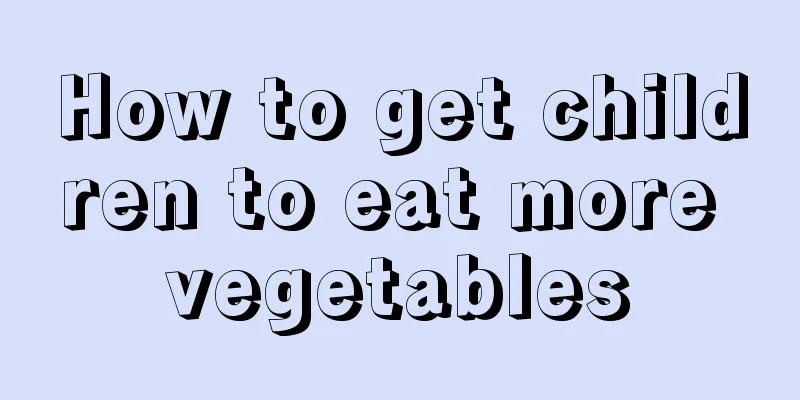What should I do if my baby has gastroenteritis?

|
Gastrointestinal diseases have a long-term impact on the body, especially for babies, gastrointestinal inflammation is prone to recurrence, which brings great damage to the health of the body and causes the baby to have long-term diarrhea and abdominal pain symptoms. This has a great impact on the baby's development. Many babies with gastrointestinal inflammation have malnutrition, which has a very serious impact. Let's take a look at what to do if your baby has gastroenteritis? 1. Clarify the cause of acute enteritis in babies If it is caused by indigestion, you can adjust your diet and choose light and easily digestible food. You can also take medication, such as taking lactase, yeast tablets, etc. 2. Pay attention to your baby’s dietary hygiene Be sure to protect your baby's diet, avoid raw and cold food, and keep the abdomen warm. 3. Replenish water and electrolytes in time Severe diarrhea can cause dehydration in babies, so parents should provide good care to prevent their baby’s gastroenteritis from worsening. Nursing points: Measure weight from time to time. When your baby has vomiting and diarrhea, in addition to observing whether the skin and lips are too dry to determine whether the baby is dehydrated, you should also measure the baby's weight from time to time to understand whether the baby's weight changes are too large. Cleaning the butt after diarrhea Diarrhea can easily irritate the skin around the buttocks and cause diaper rash. It is recommended to clean and deal with excrement as soon as possible, increase the frequency of diaper changes, use warm water to wash and dry the baby, keep it clean and dry, and avoid wiping hard with wet wipes. Babies with gastroenteritis, especially those infected with norovirus, should be isolated from other children in the home for 24-48 hours until their symptoms improve. Daily necessities must be disinfected: the sick child's clothes and bedding should be replaced, cleaned and disinfected as soon as possible; dishes, chopsticks, toys, etc. that the sick child has touched should also be cleaned and disinfected, and it is best to expose them to the sun after washing. 4 warning signs of gastroenteritis, seek medical attention as soon as possible. Regardless of whether it is viral or bacterial gastroenteritis, if the baby has the following four symptoms in addition to vomiting and diarrhea, it is recommended that parents take the baby to the doctor immediately. Dehydration: Common warning signs include dry skin and lips, less and yellower urine, and no tears when crying. High fever: The baby has a persistent high fever above 38.5℃, accompanied by poor mental vitality, and even symptoms such as dehydration and persistent vomiting. Vomiting: If the child still has energy and appetite after vomiting, it means the symptoms are not serious and can be observed first. If vomiting persists for more than 6 hours and you have poor appetite and lack of energy, you should seek medical attention as soon as possible. |
<<: What should I do if my child's body does not absorb nutrients?
>>: What should I do if my baby has a fever due to gastroenteritis?
Recommend
Causes of stuttering in children
There are many reasons for children to stutter. I...
What are the symptoms of high muscle tension in newborns?
The symptoms of high muscle tone in newborns are ...
Whooping cough symptoms in children
The reason why life exists on Earth is not only b...
Treatment for children's midnight cough
We all know that many people have experienced cou...
What causes my child to always retch?
Many parents will find that their children are al...
The harm of pediatric massage_Pediatric massage leads to adverse consequences
Now that the second-child policy has been opened ...
What are the symptoms of childhood obesity?
Childhood obesity refers to a body weight that ex...
How to relieve gas when a child has a bloated stomach
Children often have some bad habits when eating, ...
My forehead is not burning, but my stomach and body are hot.
Fever is a common phenomenon, especially for chil...
What causes children to snore while sleeping?
The quality of sleep for children is very importa...
How to make baby vegetable noodles
Generally, babies can eat complementary foods at ...
What should I do if my child gets scalded and blistered?
It is very common for children to be scalded in l...
Why does a child lose hair on the top of his head?
Mothers will surely notice that many babies lose ...
What should I do if my baby has a fever and convulsions?
It is normal for parents to worry about their chi...
What is the best food for children with dry skin?
Children have very poor physical conditions, whic...









